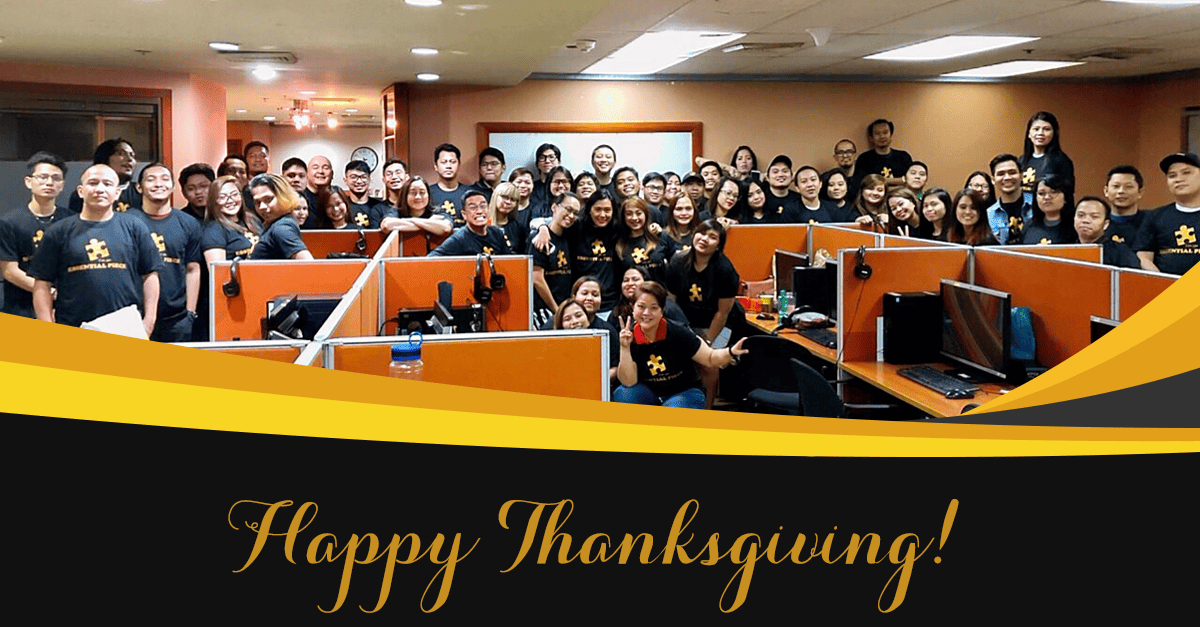Perhaps one of the most important factors that brought forth globalization is labor arbitrage, a financial concept which is typically associated with offshoring and outsourcing.
To be more precise, labor arbitrage involves recognizing the difference in costs between two alike products or services in two or more markets and then investing on the market with less cost.
Activities between countries, especially in the economic sense, become much more feasible as barriers to international trade such as tariffs and cost of transporting goods are removed or lifted, giving labor arbitrage the push forward that it needs.
The internet has made it easy to transport big volumes of data in an almost instantaneous time-frame, telecommunications and nearly any intellectual services that involves computer-related jobs or skills now come at a much affordable cost.
Encouraged by this development, governments all over the world opened their countries to international businesses by lowering their tariffs.
The emergence of the internet and governments’ support towards labor arbitrage resulted to labor arbitrage going through different phases.
In the world of HR, executives who understand how labor arbitrage transformed through the years, can better decide whether or not outsourcing and offshoring is right for their companies, especially in the recruitment sector.
In this article, we are going to discuss about how labor arbitrage evolved from offshoring to outsourcing and how recruitment process outsourcing is a good example of offshore outsourcing success story.
The Evolution of Labor Arbitrage
The concept of labor arbitrage is not exactly new. Historically, companies have long been in the search for lower labor costs, but back then, businesses were located close to their workforce and stayed there over a long-term basis.
Over the past two decades, labor arbitrage has evolved intensely with this evolution attributed to technological advancements breaking barriers and allowing businesses to invest in a previously unreachable foreign country, giving companies access to a larger pool of talent and cost arbitrage.
Offshoring— The First Wave
Offshoring to low-cost developing countries was the first wave of human resource arbitrage.
Developing countries are especially attractive as an offshore location due to having a large pool of in demand skilled labor.
India, during the 1990’s, was among the countries frequented by investors interested in offshoring some of their services. This occurrence did not happen randomly as it was a culmination of events in history that led to this.
India’s government during the 1970’s implemented a policy that required majority ownership of all foreign investments. Foreign tech companies left the country but left behind a small tech infrastructure with no one to run it. India’s strategy to cut on their losses was to build on its IT industry by producing IT experts.
When the Y2K phenomenon exploded, technologists became in demand to help update systems quickly. Almost at the same time, the internet became a hit, making telecommunications come at lower costs. All the while, Indian universities were updating their curricula, producing students with higher technology skills.
Offshoring to India at that time could not be more favorable. Foreign investors knew it and so they flocked to India to tap on its skilled labor pool and lower labor cost.
The pioneers of this offshoring venture were mostly in financial services or telecom. They set up new “captive centers” which was often a complicated, expensive and laborious process, but the savings it delivered was worth the effort.
Initially, this kind of offshoring was mostly participated by large companies, but many midsize and small companies are now poised to follow this trend.
As more and more companies show interest in offshoring, countries continue to compete to attract offshore investors, with Asia Pacific still dominating the industry, and Latin America following close behind.
Businesses’ never-ending search for cost savings eventually landed them a new way to gain additional savings, while simultaneously enjoying the benefits of labor arbitrage. And soon, the second wave of human arbitrage commenced.
Outsourcing—The Second Wave
After putting considerable effort and resources into building “captives” in offshore locations, multinationals sold these captive centers to outsourcing providers, and then bought back these in-demand services, but this time around, on a contractual basis.
Outsourcing providers, by solely working on certain back-office functions, and offering these services to several clients, turned into specialized firms, capable of delivering more cost-efficient services than their captive center predecessors.
Late comer companies who missed out on the offshore trend jumped straight onto the outsourcing bandwagon, relocating capabilities from in-house to external providers and from onshore to offshore.
However, businesses are now reconsidering this move. Outsourcing has been found to have several disadvantages, warding off companies from outsourcing and sending them back to the offshoring strategy.
Some Issues with Outsourcing
In an ideal market, the supply and demand are going to work perfectly without any hiccups along the way, however, market on the ground is usually imperfect and risks prone.
Outsourcing, in itself, has issues which put companies in jeopardizing positions. The major impetus for this business concept which used to be cost-saving was no longer the only thing to consider.
Other factors such as loss of internal coherence, data security concerns, and risk of capabilities atrophy, also became main concerns.
Loss of Internal Coherence
Loss of cross-functional skills is often a byproduct of outsourcing. Without real and meaningful interaction between people in different sectors, innovation rarely breaks through. Outsourcing can hinder these exchanges of ideas, resulting to the company losing a competitive advantage. A fragmented division of labor can be harder to manage and lead to decrease of production.
Data Security Concerns
IT outsourcing is showing vulnerabilities when it comes to data integrity. In the fast-paced industry of modern IT, highly sensitive data, such as government identifications, health records and financial records, are constantly being passed around from system to system. A breach in confidentiality can be very problematic. These kinds of information can be abused in the wrong hands.
Risk of Capabilities Atrophy
After outsourcing a business activity completely for some time, the company slowly begins to lose its group of expert people who are familiar with the job. They may retire, leave for other work, or their skills can become so rusty that they eventually become inefficient.
This expertise may become important again in the future, but when that time comes, the company no longer possess the necessary skills.
Outsourcing has many loopholes. It’s not a perfect model, and so, companies began to search again for a better business model.
Combining Offshoring and Outsourcing
When outsourcing and offshoring are combined, “…not only is work contracted out to a third party, but it is also agreed that the work will be performed in a different country.” The main reason for this fusion is, “to take advantage of the benefits of outsourcing and offshoring both,” according to Diffen.
To mitigate the risks involved in outsourcing, one way to do this is to combine it with offshoring.
This mixed strategy allows companies to easily surge and cut on resource and access skilled labor, as part of its offshoring benefits, and also enjoy cost saving and high productivity, as a product of it being an outsourcing model.
During the past decades, offshore outsourcing has been gaining momentum. McKinsley Quarterly estimates that the offshore outsourcing industry was worth between $32 to $35 billion in 2002.
It’s mostly used by industries as their corporate strategy to raise cost-effectiveness. It can happen at any level of the value chain, from labor-intensive unskilled tasks, production or manufacturing stage, technology development to marketing functions.
One example of a successful offshore outsourcing story is the case of offshore recruitment process outsourcing. It’s an area of business process outsourcing that has grown tremendously through the years, especially in the Asian market.
The Success Story of Offshore Recruitment Process Outsourcing
Offshore RPO as an industry may be young but it has quickly risen, in fact, it is currently listed among the fastest growing section of Human Resource’s Outsourcing. North America is RPO’s country of origin, and is now being adopted by countries around the globe, and is expected to grow the most in the Asia Pacific.
But what makes offshore RPO successful in Asia?
Offshore RPO Strengths In the Asia Pacific
In offshore RPO, the client, whether it’s the company itself or a staffing firm, passes on all or some parts of its recruitment process to an RPO provider based in a foreign country. This kind of strategy combines both outsourcing and offshoring benefits, resulting to its quick climb to success.
Can Address Cost-Saving Concerns of Companies
First and foremost, companies’ strongest motivation for outsourcing, is always going to be cost efficiency. According to Bullhorn, firms in the $25-50 million income range view revenue growth as priority, with 74 percent of them placing it in their top three list.
A case study by one of the leading RPO provider in the Philippines, revealed that the staffing firm who relieved some administrative duties to the Philippine firm was able to save 700 thousand dollars annually. The cost to do the same administrative work was reduced by 45 percent.
With these results, clearly, staffing firms’ goal to lower costs and earn more revenue when they offshore some or part of their RPO, have been achieved.
Can Address Data Security Risks Concerns
One of the primary concerns of companies is the partner’s capabilities to protect sensitive information. Offshore RPO providers from Asia such as India and Philippines are already working on improving cybersecurity. India’s government has taken the initiative by implementing laws that are going to strengthen the country’s resilience against cyberattacks.
Philippines, which is among the offshoring hub in Asia, has also taken steps towards modern IT data protection. During IT & Cyber Security Forum, digital government programs meant to create stricter cybersecurity programs have been revealed. It aims to make the country a hub for local and offshore business.
Offshore RPO Providers Allow Access to Skilled Talent Pool
As mentioned earlier in this article, developing countries in Asia have large pools of highly skilled labor force. By partnering with offshore RPO providers, staffing firms can gain access to these talents on top of cost arbitrage.
Countries like Singapore have one of the highest education standards in the world. The Philippines, as well, has a relatively high literacy rate. Around 95.9 percent of the total population can read and write which is among the highest in the globe, a percentage most striking when compared to other developing countries.
“Chunkification” of Recruitment Process Addresses the Issue of Capabilities Atrophy
One of the weaknesses of outsourcing that was discussed earlier was regarding the loss of core knowledge or capabilities atrophy. This can be addressed through “chunkification” of recruitment process, which means division of process into smaller chunks.
Offshore RPO firms in Asia Pacific are doing exactly this, hence staffing firms are able to avoid the danger of capabilities atrophy.
Some RPO firms in China divides the full life cycle of recruitment process into name generating, resume screening and job boards posting. Indian and Philippine RPO firms offers similar services as well such as candidate sourcing, administrative support, and VMS recruiting.
As we mentioned earlier, this isn’t a perfect world, even if offshore RPO is the fusion of offshore and outsourcing strategies, and was able to solve some of the main issues regarding outsourcing, there are still criticism regarding offshore RPO.
Criticism on Offshore RPO
Offshore RPO stealing Americans’ Job
There are conflicting research results regarding whether or not offshore outsourcing indeed robs Americans of jobs. The phenomenon, wherein business activities once done onshore are moved to foreign lands, may at first seem to naturally result to previous talents who once had those jobs getting robbed of their source of income. But the story is not as black and white.
Some studies suggest that offshore outsourcing has been a net job creator for the US. As a result of moving works offshore, more jobs emerged back in the US than were lost, but these jobs may not necessarily be of the same sector.
According to the Washington Post, such studies are consistent with economic theory. Trade and global liberalization are win-win strategies, improving everyone’s productivity and income, and promoting economic growth everywhere.
The debate is still up regarding this topic. Whether or not outsourcing takes jobs from Americans is going to depend on which perspective or lens the judge is going to take.
Lack of infrastructure
According to ADB, infrastructure in Asia has improved tremendously but it’s still far from being considered “adequate”. But to maintain economic growth, Asian countries feel immense pressure to improve and so in the past years, infrastructure has been a top investment priority for most Asian governments.
The Philippine government is currently working on the development of “next wave cities for BPO sector”. These cities are going to be conducive business districts that are going to be perfect base location for offshore firms. They are going to have reliable power connection and capable of handling fast paced and high functioning IT.
Vietnam’s government is also working on the improvement of its infrastructure projects through the combined efforts of the public and private partnerships to keep its status as among the top outsourcing hubs.
Final Thoughts
Labor arbitrage has gone through different phases as technology continue to advance, bridging countries and uniting economies. Although offshoring may have been the first wave of labor arbitrage, and outsourcing came next, these two strategies are now existing simultaneously in the market.
Offshore outsourcing can be the best way to mitigate the risks involved in outsourcing and simultaneously enjoy the access to highly skilled labor supply in offshore destinations, most specifically in Asia Pacific countries.
Offshore RPO is one of the best examples of how effective and efficient the combined strategies can be. India, Philippines, and China are the flagship locations when it comes to offshore RPO.
However, offshore RPO is not perfect in itself. It still has its weaknesses but the market is continuously searching for ways to improve. While it may not be a fix all solution, it provides one of the most lucrative solutions to staffing firms’ recruitment problems.
Now that you know about offshore RPO being a successful offshore-outsource strategy and its criticisms, do you think offshore outsourcing is fit for your company? Share your thoughts by writing a comment down below!
Source
The Balance. (2018). Learn About Labor Arbitrage and the Cost Differentials of Outsourcing. [online] Available at: https://www.thebalance.com/how-companies-benefit-from-labor-arbitrage-2552891 [Accessed 25 Aug. 2018].
Fast Company. (2004). A Brief (Recent) History of Offshoring. [online] Available at: https://www.fastcompany.com/48750/brief-recent-history-offshoring [Accessed 25 Aug. 2018].
Atkearney.ch. (2018). A Wealth of Choices From Anywhere on Earth to No Location at All 2014 A.T. Kearney Global Services Location Index – Paper – A.T. Kearney | Switzerland – A.T. Kearney. [online] Available at: http://www.atkearney.ch/paper/-/asset_publisher/dVxv4Hz2h8bS/content/a-wealth-of-choices-from-anywhere-on-earth-to-no-location-at-all-2014-a-t-kearney-global-services-location-index/10192 [Accessed 25 Aug. 2018].
Artsandscience.usask.ca. (2018). The Less Developed Countries in the Global Environment. [online] Available at: https://artsandscience.usask.ca/economics/resources/pdf/macbetter.htm [Accessed 26 Aug. 2018].
Core.ac.uk. (2018). [online] Available at: https://core.ac.uk/download/pdf/39927024.pdf [Accessed 26 Aug. 2018].
Diffen.com. (2018). Offshoring vs Outsourcing – Difference and Comparison | Diffen. [online] Available at: https://www.diffen.com/difference/Offshoring_vs_Outsourcing [Accessed 26 Aug. 2018].
Altstaffing.org. (2018). [online] Available at: https://altstaffing.org/wp-content/uploads/2018/01/2018-North-American-Staffing-Recruiting-Trends-Report_Bullhorn.pdf [Accessed 26 Aug. 2018].
Pandey, A. (2017). Cyber Security Initiatives by the Government of India – iPleaders. [online] iPleaders. Available at: https://blog.ipleaders.in/cyber-security-initiatives/ [Accessed 27 Aug. 2018].
Israel Chamber of Commerce of the Philippines. (2017). ICCP’s IT & Cyber Security Forum: Is PH Ready to Go Digital?. [online] Available at: https://www.iccp.ph/philippines-ready-go-fully-digital/ [Accessed 11 Aug. 2018].
Israel Chamber of Commerce of the Philippines. (2017). ICCP’s IT & Cyber Security Forum: Is PH Ready to Go Digital?. [online] Available at: https://www.iccp.ph/philippines-ready-go-fully-digital/ [Accessed 11 Aug. 2018].
GmbH, f. (2018). Global $5.01 Bn Recruitment Process Outsourcing (RPO) Market, 2025 | Markets Insider. [online] markets.businessinsider.com. Available at: https://markets.businessinsider.com/news/stocks/global-5-01-bn-recruitment-process-outsourcing-rpo-market-2025-1002959741 [Accessed 3 Aug. 2018].
Davenmichaels.com. (2013). Philippines: BPO’s leading English Speaking Labor Force! | Daven Michaels. [online] Available at: http://davenmichaels.com/philippines-bpos-leading-english-speaking-labor-force/ [Accessed 4 Aug. 2018].
Tandfonline.com. (2018). [online] Available at: https://www.tandfonline.com/doi/abs/10.1080/10580530903245549 [Accessed 27 Aug. 2018].
Washington Post. (2018). [online] Available at: https://www.washingtonpost.com/business/economy/outsourcings-net-effect-on-us-jobs-still-an-open-ended-question/2012/07/01/gJQAs1szGW_story.html?noredirect=on&utm_term=.5045b6fa6ad3 [Accessed 27 Aug. 2018].
Asian Development Bank. (2017). Infrastructure Development in Asia: 12 Things to Know. [online] Available at: https://www.adb.org/news/features/infrastructure-development-asia-12-things-know [Accessed 27 Aug. 2018].




















